第18章 CHAPTER XI(1)
A Description of the Natives of New South Wales,and our Transactions with them.
I doubt not my readers will be as glad as I feel myself,to conclude the dull detail of the last chapter.If they please,they may turn from the subtle intricacies of the law,to contemplate the simple,undisguised workings of nature,in her most artless colouring.
I have already said,we had been but very few days at Port Jackson,when an alteration in the behaviour of the natives was perceptible;and I wish I could add,that a longer residence in their neighbourhood had introduced a greater degree of cordiality and intermixture between the old,and new,lords of the soil,than at the day on which this publication is dated subsists.
From their easy reception of us in the beginning,many were induced to call in question the accounts which Mr.Cook had given of this people.
That celebrated navigator,we were willing believe,had somehow by his conduct offended them,which prevented the intercourse that would otherwise have taken place.The result,however,of our repeated endeavours to induce them to come among us has been such as to confirm me in an opinion,that they either fear or despise us too much,to be anxious for a closer connection.
And I beg leave at once,to apprize the reader,that all I can here,or in any future part of this work,relate with fidelity of the natives of New South Wales,must be made up of detached observations,taken at different times,and not from a regular series of knowledge of the customs and manners of a people,with whom opportunities of communication are so scarce,as to have been seldom obtained.
In their persons,they are far from being a stout race of men,though nimble,sprightly,and vigorous.The deficiency of one of the fore teeth of the upper jaw,mentioned by Dampier,we have seen in almost the whole of the men;but their organs of sight so far from being defective,as that author mentions those of the inhabitants of the western side of the continent to be,are remarkably quick and piercing.Their colour,Mr.Cook is inclined to think rather a deep chocolate,than an absolute black,though he confesses,they have the appearance of the latter,which he attributes to the greasy filth their skins are loaded with.Of their want of cleanliness we have had sufficient proofs,but I am of opinion,all the washing in the world would not render them two degrees less black than an African negro.At some of our first interviews,we had several droll instances of their mistaking the Africans we brought with us for their own countrymen.
Notwithstanding the disregard they have invariably shewn for all the finery we could deck them with,they are fond of adorning themselves with scars,which increase their natural hideousness.It is hardly possible to see any thing in human shape more ugly,than one of these savages thus scarified,and farther ornamented with a fish bone struck through the gristle of the nose.
The custom of daubing themselves with white earth is also frequent among both sexes:but,unlike the inhabitants of the Islands in the Pacific Ocean,they reject the beautiful feathers which the birds of their country afford.
Exclusive of their weapons of offence,and a few stone hatchets very rudely fashioned,their ingenuity is confined to manufacturing small nets,in which they put the fish they catch,and to fish-hooks made of bone,neither of which are unskilfully executed.On many of the rocks are also to be found delineations of the figures of men and birds,very poorly cut.
Of the use or benefit of cloathing,these people appear to have no comprehension,though their sufferings from the climate they live in,strongly point out the necessity of a covering from the rigour of the seasons.
Both sexes,and those of all ages,are invariably found naked.But it must not be inferred from this,that custom so inures them to the changes of the elements,as to make them bear with indifference the extremes of heat and cold;for we have had visible and repeated proofs,that the latter affects them severely,when they are seen shivering,and huddling themselves up in heaps in their huts,or the caverns of the rocks,until a fire can be kindled.
Than these huts nothing more rude in construction,or deficient in conveniency,can be imagined.They consist only of pieces of bark laid together in the form of an oven,open at one end,and very low,though long enough for a man to lie at full length.There is reason,however,to believe,that they depend less on them for shelter,than on the caverns with which the rocks abound.
To cultivation of the ground they are utter strangers,and wholly depend for food on the few fruits they gather;the roots they dig up in the swamps;and the fish they pick up along shore,or contrive to strike from their canoes with spears.Fishing,indeed,seems to engross nearly the whole of their time,probably from its forming the chief part of a subsistence,which,observation has convinced us,nothing short of the most painful labour,and unwearied assiduity,can procure.When fish are scarce,which frequently happens,they often watch the moment of our hauling the seine,and have more than once been known to plunder its contents,in spite of the opposition of those on the spot to guard it:and this even after having received a part of what had been caught.The only resource at these times is to shew a musquet,and if the bare sight is not sufficient,to fire it over their heads,which has seldom failed of dispersing them hitherto,but how long the terror which it excites may continue is doubtful.
The canoes in which they fish are as despicable as their huts,being nothing more than a large piece of bark tied up at both ends with vines.
Their dexterous management of them,added to the swiftness with which they paddle,and the boldness that leads them several miles in the open sea,are,nevertheless,highly deserving of admiration.A canoe is seldom seen without a fire in it,to dress the fish by,as soon as caught: